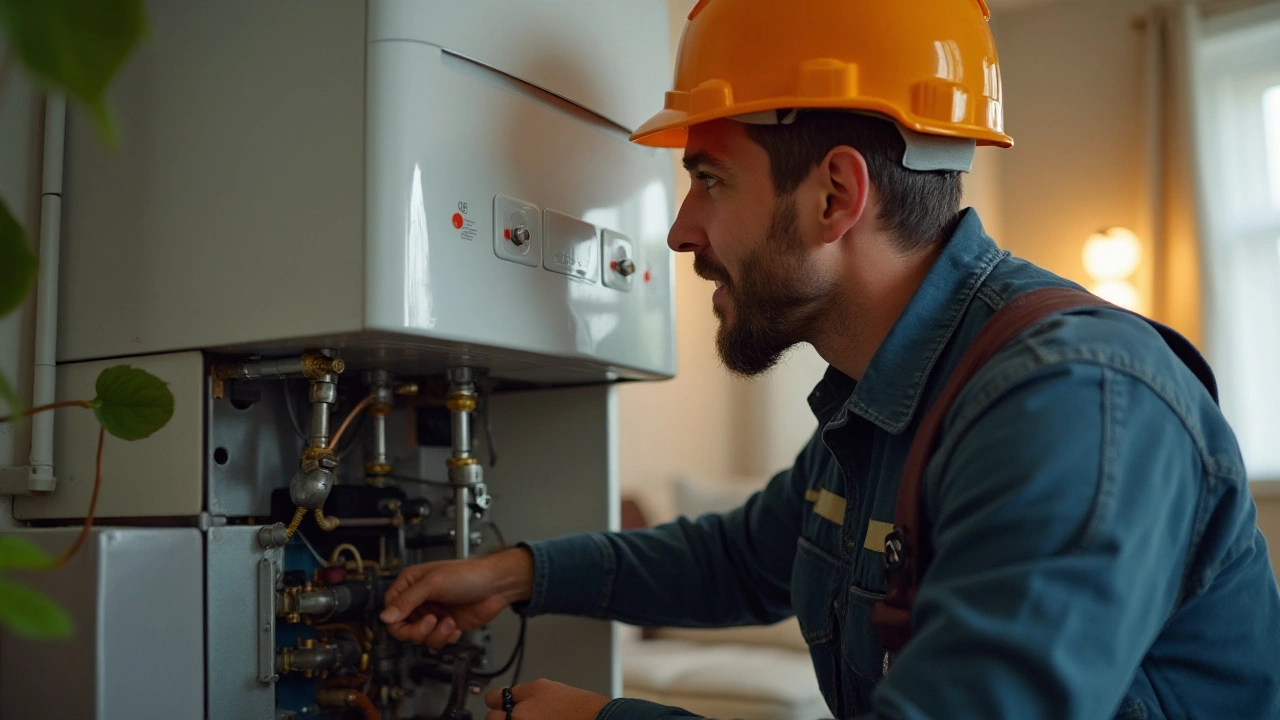HVAC Repair and Maintenance Made Simple
When your heating, cooling, or hot‑water system stops working, it can throw a wrench into your daily routine. The good news is that many HVAC problems have easy fixes, and knowing the basics can save you time and money. Below you’ll find clear advice on the most common issues, quick DIY steps, and when it’s best to call a professional.
Common HVAC Issues and How to Spot Them
First, let’s look at the signs that something’s off. A boiler that makes loud knocking noises, a water heater that won’t stay hot, or an air conditioner that blows weak air are all red flags. If you notice strange smells, frequent cycling, or a sudden rise in energy bills, it’s time to investigate. Checking the thermostat settings, filter condition, and power supply can often pinpoint the problem without opening up the unit.
For boilers, a tripping reset button usually means a pressure or thermostat issue. Hot‑water heaters that sputter or leak often have a failing heating element or a broken valve. In cooling systems, dirty coils or a clogged filter cause poor airflow and reduced cooling. Spotting these symptoms early helps you avoid bigger, costlier repairs later.
Quick DIY Fixes and When to Call a Pro
Some problems you can tackle yourself with basic tools. Replacing a clogged air filter takes just a few minutes and restores airflow to your furnace or AC. Flushing a water heater to remove sediment can improve efficiency, while tightening loose wiring on a thermostat can solve erratic heating. Always turn off power and water supplies before starting any work, and follow the safety tips in our step‑by‑step guides.
If you’ve tried the easy fixes and the issue persists—like a boiler that still trips after resetting, or an AC that still blows warm air—call a qualified technician. Professional repair ensures the job is done safely and conforms to local regulations. It also protects any warranty you might have on the appliance.
At Wells Appliance Repairs, our technicians are trained to handle all HVAC components, from boilers and hot‑water systems to central heating and cooling units. We offer fast response times, transparent pricing, and a commitment to getting your home comfortable again.
Remember, regular maintenance is the best defense against unexpected breakdowns. Schedule an annual boiler service, clean your AC coils before summer, and flush your water heater every two years. A little preventive work now means fewer emergencies later.
Need help deciding whether to DIY or hire a pro? Use our handy checklist: if the problem involves gas, high voltage, or internal components you can’t see, it’s safer to let an expert handle it. For surface‑level issues like filters, drains, or thermostat settings, feel confident tackling them yourself.
Got a specific HVAC question? Browse our collection of guides, from “How to Reset an Electric Hob” to “Signs You Need a New Hot Water Heater.” Each article breaks down the steps you need, the tools required, and the warning signs that indicate it’s time for professional help.
Keeping your heating, cooling, and hot‑water systems in top shape doesn’t have to be a headache. Follow the tips above, stay on top of regular service, and you’ll enjoy a comfortable home all year round.
Who Fixes Your Boiler? Unveiling the Skills and Traits of Boiler Technicians
0 Comments
Ever wondered who fixes your boiler when it breaks down? This article delves into the world of boiler technicians, exploring the skills and personality traits needed in this crucial profession. From understanding complex heating systems to ensuring home safety, boiler repair experts are equipped with technical knowledge and problem-solving abilities. Discover what it takes to excel in this field and how these professionals keep your home's heating running smoothly.
Read More